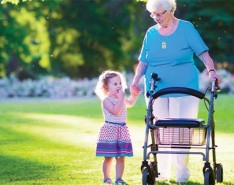HME Business Advice
WASHINGTON, D.C., March 20, 2013—The American Association for Homecare, the legislative advocacy organization representing the largest cross-section of home respiratory, mobility, infusion therapy and medical equipment companies nationwide, announces that Tyler Wilson will leave the organization as president and chief executive officer (CEO) in September 2013.
WASHINGTON, D.C., Feb. 1, 2013—It’s hard to recall a week with worse news for the home care community than what occurred last Wednesday with the CMS announcement about Round 2 prices. Home care providers pride themselves in meeting Medicare’s requirements by supplying top quality products with attention to first-rate service and professionalism. An approach to their business that focuses on the Medicare beneficiary is the key to success for many home care companies.
WASHINGTON, Sept. 19, 2012—Stakeholders are hopeful that eleventh-hour changes will smooth Medicare’s new prior authorization process for beneficiaries who have prescriptions for power wheelchairs.
WASHINGTON, DC, September 21, 2012—The American Association for Homecare applauds a bipartisan bill introduced today in the House of Representatives that would implement market-based pricing for home medical equipment and services such as oxygen therapy, wheelchairs, and other durable medical equipment that allow Medicare beneficiaries to remain safe and independent at home.
WASHINGTON, Aug. 7, 2012—The American Association for Homecare (AAHomecare) is disappointed that Medicare is implementing a prior authorization program for power wheelchairs without including a key component. Physicians, providers and advocates for disabled Americans insist that patient care will be jeopardized without a clinical template to help physicians document a patient's medical need for mobility assistance.


